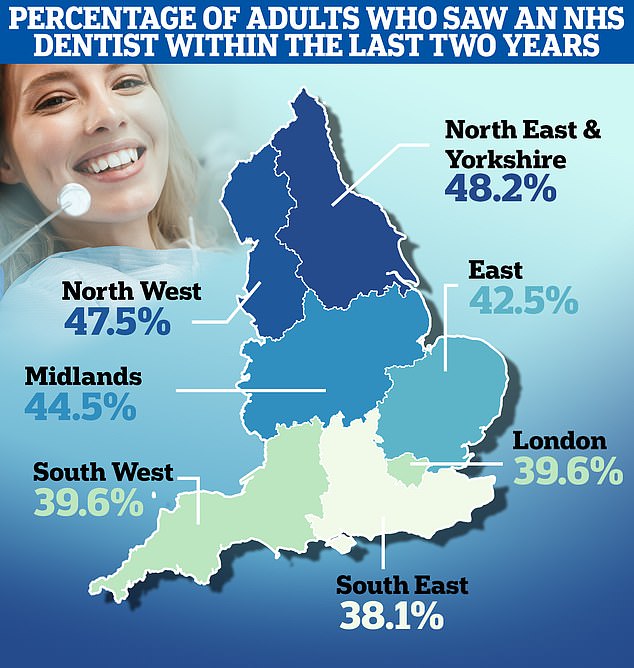Restricting silver fillings in the EU could affect you: Warning that Bloc’s proposed amalgam ban could disrupt healthcare in Britain
- The EU Parliament is about to ban dental amalgam over fears of its toxicity
- Dental leaders have warned the move would be disastrous for Britain
Dentists could face problems carrying out fillings if a proposed EU ban on mercury is given the green light tomorrow.
The European Parliament is about to ban dental amalgam, used in common silver fillings, over fears of its toxicity.
Dental leaders have warned the move would be disastrous for Britain, which relies on the ‘safe and effective’ treatment for millions of fillings a year.
They say the ban on use, production and exports from January 2025 would disrupt supplies and drive up costs for the NHS and private dentists.
Eddie Crouch, chairman, said: ‘Since the birth of NHS dentistry, amalgam has been the material of choice in the fight against tooth decay.
The European Parliament is about to ban dental amalgam, used in common silver fillings, over fears of its toxicity

Only 43 percent of over-18s were seen by a dentist in the 24 months to June 2023, compared to more than half in the same period before the pandemic hit
‘Nothing competes on durability, ease of installation or cost-effectiveness.
‘If this vote passes and the Government does not step up, the impact will be felt in practices across the UK, and among the millions who are already struggling to access care.’
The debate has raged for decades because more than half of amalgam fillings consist of mercury, which is more toxic than lead.
It is mixed with silver, copper and tin and forms a very durable combination to retain the mercury.
But it is now believed that mercury vapor escapes and small amounts enter the bloodstream and organs, especially when it is inserted or removed.
Some campaigners suggest the fillings are highly toxic, linking their use to certain neurological or autoimmune diseases, such as Alzheimer’s.
But British health officials say there is no evidence that exposure to mercury from amalgam fillings has any harmful health effects.
In 2018, an EU directive stopped silver fillings in baby teeth and children under the age of 15 unless dentists deemed it necessary. They are also not given to pregnant or breastfeeding women.
The latest step is environmentally driven, in line with the objectives of the European Green Deal, the 2020 EU Chemicals Sustainability Strategy and the 2021 EU Zero Pollutant Action Plan.
Any mercury released into the environment can re-enter the food chain, with residues being found in soil, fish and seafood.
High mercury exposure can damage the brain, lungs, kidneys and the human immune system.
If passed, EU countries – and Northern Ireland under post-Brexit arrangements – would join countries such as Sweden, Norway, Denmark and Germany in halting the use.
Although there are long-standing plans to phase out the use in Britain, experts fear an abrupt stop would be a multi-million pound blow to already struggling services, destabilizing NHS dentistry.
As patients have had to wait a long time for an NHS appointment, the push for white fillings would make this worse, taking longer to request and often requiring repeat placements.
It comes just weeks after a report from the Nuffield Trust warned that NHS dentistry is ‘gone for good’ and must be rationed for those most in need.
It described it as the most dangerous point in its history and said a radical overhaul was needed, including testing patients’ resources and limiting facilities to emergency treatments and checks.
